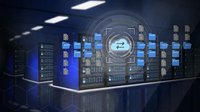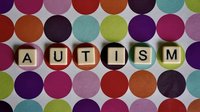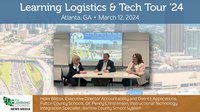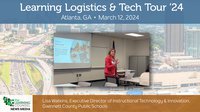For the second year in a row, Curiosity Conference will draw top leaders in education and AI to Silicon Valley, where they will work to carve a path toward widespread integration of robotics in modern school curricula. “I am so happy that we are working with great co-sponsors such as World Innovation Summit for Education – WISE, and other strong partners,” says founder and CEO Yao Zhang of this year’s conference.
Zhang initiated Curiosity Conference in 2018 after her startup, RoboTerra, made waves in robotics education across the globe. The award-winning RoboTerra curriculum she developed allows students to use the same hardware that powers modern technology to develop robots of their own. Her work with the company over the last five years resulted in her rising up as the de facto leader in applied AI for education worldwide. She quickly found herself overwhelmed with requests to speak at forums and consult with international leaders as they sought her expertise.
“I was definitely overtasked and over-invited by so many leading policy conferences such as UN conventions, or DAVOS (The World Economic Forum), the World Government Summit,” recalled Zhang as she explained her decision to launch a forum of her own. Ministers of countries that RoboTerra had worked with previously such as China and Dubai continued to rely on her knowledge. Eventually, countries that Roboterra had never partnered with at all pursued her insights so persistently that she decided to bring leaders and experts to her in Silicon Valley. “I am the person who is working on basically applying robots and AI for education” she explained.
Curiosity Conference has also given Zhang a way to bring education policymakers, product developers, and investors all to one place where they can collaborate. “All of us are together to continue advancing the discussions we've had since last year's Human-Centered, Human-Driven theme,” says Zhang. Leading speakers for 2019 will include Dr. Leroy Chiao, former NASA astronaut and International Space Station Commander; Alex Kaplan, Global Leader of IBM Watson Education; Carl Ward, Health and Public Service Technology Officer at Accenture; Stavros Yiannouka, CEO of WISE; and leading Silicon Valley investors Steve Jurvetson and Frank Caufield.
This year’s theme, AI for Education: A Journey in the Making, highlights the need for ongoing adaptation to overcome the challenges that lie ahead in an increasingly automated society. “Its's really recognizing that we do not necessarily know the best answer to every question we have,” she explains. “First, we have to know each other, and have to connect, and have to really hear each other so that we're able to address issues and then come up with solutions that can be effective.”
Zhang’s passion stems from acknowledgement that the AI technology already in widespread use has profound implications for everyone’s futures. One topical area of influence lies within the industries and jobs affected by AI technology. According to MarketWatch, over 30 million workers are likely to lose their jobs to automation during the next generation’s lifetime. Contemporary students will need to consider the impact of AI on the labor market as they move into their careers, meaning educators must prepare students now for an AI-driven workplace. “How do we prepare the kids today in today’s schools to be ready for this AI future that’s here already?” asks Zhang. “What educational solutions should be in place if we want to prepare our future generations in the right way?” These are just a few questions she and her contemporaries hope to find answers to.
Another major implication of current AI technology that Zhang has identified lies with the big data companies use to provide services. “There are huge implications about privacy and bias issues, for example,” she points out. Software algorithms are already being used for crime prediction, loan applications and college admissions, historically areas where bias runs rampant. The result is that children today are growing up in a world where information about most aspects of their lives will be stored and utilized. Leaders like Zhang recognize they need to be suitably prepared for it.
To learn more about the discussions happening at Curiosity Conference, visit the agenda and check for updates on the Curiosity Conference Twitter pages.
Sarah Acre is a former science teacher and current freelance journalist covering the education technology space. She loves to explore the deeper implications of edtech and to share the stories behind top educational solutions with her audience.










